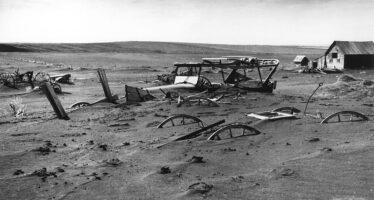The violence of the violated
![]()
By A. Sivanandan
Director of the Institute of Race Relations comments on the recent riots.
Everyone is clutching at explanations for the riots – gangs, greed, family breakdown, lack of respect. But I would like to go into their deeper causes.
Society is completely polarised between rich and poor, mediated through a culture of consumerism and quick fixes. Almost a third of the population is mired in poverty and deprivation. And this affects the younger generation much more directly and violently than any other section. Directly, through unemployment, cuts in education, youth facilities and mentoring schemes – they are neither socialised by work nor by community. Violently, because they are policed over and criminalised by stop and search laws and an anti-youth surveillance culture. They have nothing to look forward to – no economic mobility, no social mobility. And they have nothing to look back on, disconnected as they are from the previous generation. The system is trying to blame the parents but they themselves have been deprived of the wherewithal to bring up their children in a decent environment. (The only thing that trickles down is poverty.)
Hence the rebellion of the youth is neither community-based nor politically-oriented – which is what distinguishes them from the disturbances of 1981 and 1985. Those were uprisings based on community organising. These are riots mobilised on a Blackberry.
I have been asked if this has happened because multiculturalism has failed. On the contrary, multiculturalism has succeeded at the point of riot: the rioters came from all communities.
We have a political culture which has been manipulated by Murdoch and the press. We’ve got a feral elite of politicians, press, police and banks running the whole system. And there’s so much anger right across society-not just in these kids. This is not the end of rebellion, it is the beginning.
Related Articles
Turkish state official admits Paris murders
![]()
The former head of the General Staff’s intelligence department, Ismail Hakkı Pekin, admitted in a television broadcast that the murders of the three Kurdish women revolutionaries in Paris in 2013 were a state operation.
Grasp the opportunity
![]()
GERRY ADAMS The statement by ETA on Monday that it is committed to ‘a permanent and general ceasefire which will
Donald Trump: “… the United States will withdraw from the Paris climate accord…”
![]()
Donald Trump is pulling the United States from the Paris climate agreement, the 2015 agreement designed to halt rapidly escalating and potentially catastrophic climate change




